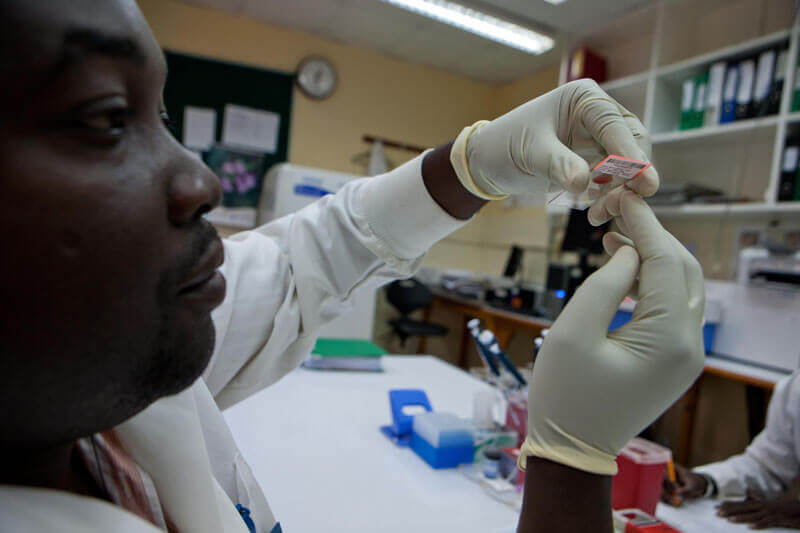Angeline NanniAeras
Angeline Nanni is Director of Market Access at Aeras, a non-profit biotech advancing the development of tuberculosis vaccines for the world.
In this guest post, Angeline Nanni—director of Market Access at Aeras—reflects on World Immunization Week.
Through the heroic efforts of infant and childhood global vaccination programs, childhood diseases that once caused millions of deaths across the globe have been thwarted. Hope has overshadowed fear as preventive vaccines help the healthy to remain free from deadly diseases and allow whole communities to thrive. In honor of World Immunization Week, we applaud those at national health departments, the Gavi, the Vaccine Alliance, United Nations Children’s Fund, the World Health Organization, and others whose dedication, expertise, and political will have led to ambitious and successful immunization campaigns.
Remarkable results of global and national vaccination campaigns and programs have led to:
Additionally, estimates show that an additional 1 million children’s lives will be saved every year with the accelerated introduction of vaccines against pneumococcal disease and rotavirus. The MenAfriVac® vaccine is expected to prevent 437,000 cases of meningitis over the next 10 years, saving 43,500 lives and approximately $570 million.

Immunization has saved the lives of more children than any other medical intervention in the last 50 years. However, one in five children still do not have access to these lifesaving vaccines. The majority of these children lives in the poorest countries and regions of the world, and faces the highest risk of exposure to life-threatening, vaccine-preventable diseases like measles and meningitis. We must make a concerted effort to ensure that vaccines are available and accessible to all who need them, as laid out in the Global Vaccine Action Plan. This Plan, which was endorsed by the World Health Assembly in 2012, provides a framework for achieving the vision of delivering universal access to immunizations for all people, at affordable and sustainable prices.
While many generations in developed countries have benefited from vaccines, newer generations have never experienced the death and devastation caused by vaccine-preventable diseases. This has led to complacency, skepticism, and misinformation about the safety and value of vaccines. We cannot let this undo the tremendous gains that have been achieved through vaccines. We cannot go back to a world where children die, families are devastated, and communities are vulnerable to diseases that could be prevented by routine and safe vaccinations.
The extraordinary success of vaccines in saving millions of lives and improving health throughout the world has the potential to protect millions more from other deadly infectious diseases, like tuberculosis (TB). The deadly combination of TB and HIV and increasing rates of drug-resistance are making this disease more difficult to diagnose and treat, and more deadly. There has been important progress in developing new drugs and diagnostics, but TB will remain a global threat without new, more effective vaccines. Prevention through vaccination would be the most cost-effective tool to mitigate these global epidemics. Recent economic and health impact modeling demonstrates that a 60 percent efficacious adolescent and adult preventive TB vaccine, delivered to a mere 20 percent of the population, could potentially avert as many as 40-60 million new cases of TB over the course of 26 years and would be cost-effective. A significantly improved infant vaccine could potentially avert 5-10 million cases of TB over that same time period.
Significant progress is being made in research and development efforts for new vaccines against TB. To date, more than 16 TB vaccine candidates have been tested in human clinical trials, and scientists are doing basic research to discover effective correlates of protection for TB vaccines. As researchers continue developing TB vaccine candidates and moving them through preclinical and clinical studies, we are simultaneously working on early access strategies to maximize public health impact and be better prepared to accelerate vaccine delivery to reach those hardest hit by the TB epidemic.
Vaccines have made the world a vastly different place by reducing the incidence of disease, providing freedom from worry and fear of the death and disability that they cause. Vaccines hold the key to a healthier and wealthier world for all of us.
This week we recognize the success of critical vaccine implementation efforts. We support more scale-up of these implementation efforts, the goal of universal coverage, and the research and development of new vaccines to prevent even more disease and deaths. We look forward to the day when TB is also added to the list.